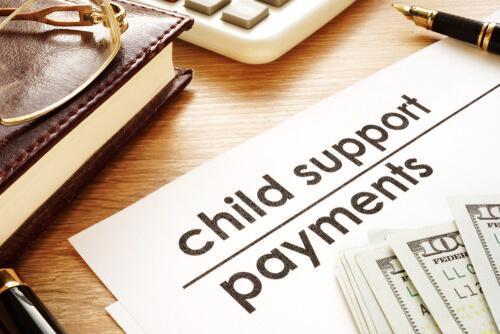 630-393-3111
630-393-3111
4200 Cantera Drive, Suite 200 | Warrenville, IL 60555
Recent Blog Posts
My Spouse Threatened to Divorce Me During an Argument. What Should I Do?
 Divorce is a dreaded word that no married person ever wants to hear their spouse utter. But unfortunately, when an argument arises between spouses, especially a heated one, divorce can get mentioned. But should you take your spouse’s words seriously in the context of a dispute? Chances are, if your spouse has mentioned divorce, you should consider taking a step back to assess the situation. Today, we will discuss what to do if your spouse threatens to divorce you during an argument. Remember, if you think there is credence to what your spouse is saying and think they are serious about divorce, consult a qualified divorce attorney for legal advice moving forward.
Divorce is a dreaded word that no married person ever wants to hear their spouse utter. But unfortunately, when an argument arises between spouses, especially a heated one, divorce can get mentioned. But should you take your spouse’s words seriously in the context of a dispute? Chances are, if your spouse has mentioned divorce, you should consider taking a step back to assess the situation. Today, we will discuss what to do if your spouse threatens to divorce you during an argument. Remember, if you think there is credence to what your spouse is saying and think they are serious about divorce, consult a qualified divorce attorney for legal advice moving forward.
What You Should Consider if Your Spouse Threatens Divorce
Recently, we wrote a blog detailing how someone should discuss divorce with their spouse. Cited in that blog, we stated that you should avoid bringing up the topic of divorce during an argument since, as is evident in this blog, the fog of an argument can cloud reality and make it difficult to know whether your spouse was serious when they said it or not. Moreover, mentioning divorce during an argument can significantly damage a marriage. Here are a few things you should consider if your spouse mentions divorce, including:
How to Talk to Your Spouse About Divorce
 Few people begin a marriage expecting that one day it will end. But, sadly, that is the reality for a lot of people. Divorce is difficult for so many reasons. Often, we think about divorce in terms once the process is already underway and the various issues that must be settled. But an important question remains: how are you supposed even to broach the subject of divorce with your spouse?
Few people begin a marriage expecting that one day it will end. But, sadly, that is the reality for a lot of people. Divorce is difficult for so many reasons. Often, we think about divorce in terms once the process is already underway and the various issues that must be settled. But an important question remains: how are you supposed even to broach the subject of divorce with your spouse?
Of course, divorce is a difficult topic to bring up with a spouse, and it can be emotionally charged and stressful for both parties. However, some ways exist that can minimize the conflict and result in, hopefully, a smoother divorce process. Today, we will discuss how you should and should not bring up the idea to your spouse. If you believe your marriage is heading toward a divorce, contact an experienced divorce attorney to ensure you understand your legal obligations and that your rights and best interests can be advocated for.
Ways You Should and Should Not Bring Up Divorce with Your Spouse
Debunking the Many Misconceptions of Divorce Mediation
 As you may be aware, divorce mediation is a method of resolving disputes between divorcing spouses with the help of a neutral third party known as a mediator. While divorce mediation is certainly gaining mainstream popularity, particularly as an effective alternative to litigation, several things still need to be clarified about the process. Today, we will discuss and debunk some of the most common misconceptions about divorce mediation. If you are getting a divorce and think mediation may be worthwhile to pursue, contact a divorce attorney who will help you get the process started while also ensuring that your rights throughout the divorce process remain protected and advocated for.
As you may be aware, divorce mediation is a method of resolving disputes between divorcing spouses with the help of a neutral third party known as a mediator. While divorce mediation is certainly gaining mainstream popularity, particularly as an effective alternative to litigation, several things still need to be clarified about the process. Today, we will discuss and debunk some of the most common misconceptions about divorce mediation. If you are getting a divorce and think mediation may be worthwhile to pursue, contact a divorce attorney who will help you get the process started while also ensuring that your rights throughout the divorce process remain protected and advocated for.
What are the Most Common Misunderstandings Surrounding Divorce Mediation?
The following are some of the most common misunderstandings regarding divorce mediation, including:
- Mediation is only for amicable couples – One of the most prevalent misconceptions about divorce mediation is that it is only suitable for couples with an amicable divorce. This is not entirely true. In fact, mediation can be beneficial for couples who are experiencing high levels of conflict. A skilled mediator can help parties communicate effectively and work through their issues, even if they struggle to get along.
Think Twice Before You Post: How Social Media Can Affect a Divorce
 For many of us, social media has become an integral part of our lives, making connecting with friends and family more accessible. While that may be true, how could social media ever affect a divorce? Today, we will discuss how social media can affect divorce proceedings. If you are considering getting a divorce, consider consulting with a skillful divorce attorney to help you understand your rights and legal options.
For many of us, social media has become an integral part of our lives, making connecting with friends and family more accessible. While that may be true, how could social media ever affect a divorce? Today, we will discuss how social media can affect divorce proceedings. If you are considering getting a divorce, consider consulting with a skillful divorce attorney to help you understand your rights and legal options.
Ways Social Media Can Be a Factor in a Divorce
One of the most significant ways social media can affect a divorce case is by providing evidence that may be used in court. Many people use social media to post their thoughts and feelings, and sometimes they may reveal information that can be used against them in court. For example, suppose a person claims they cannot afford to pay alimony or child support, but they post pictures of themselves on expensive vacations. In that case, the other party could use those pictures to argue that that person can afford to pay. Similarly, if a person claims they are a responsible parent but posts pictures of themselves partying or drinking excessively, the other party could use those pictures to argue that the person is not a responsible parent.
What is the Role of a Child Representative in a Divorce Case?
 Illinois Marriage and Dissolution of Marriage Act 750 Illinois Compiled Statute (ILCS) § 5/602.5(a) establishes that courts must allocate decision-making responsibilities according to a child's best interests. Courts may need the assistance of a third party in determining what is in a child’s best interests. A child representative may be appointed in cases in which parties are disputing parenting time, custody, visitation, education, property interest, or general welfare of a child.
Illinois Marriage and Dissolution of Marriage Act 750 Illinois Compiled Statute (ILCS) § 5/602.5(a) establishes that courts must allocate decision-making responsibilities according to a child's best interests. Courts may need the assistance of a third party in determining what is in a child’s best interests. A child representative may be appointed in cases in which parties are disputing parenting time, custody, visitation, education, property interest, or general welfare of a child.
Types of Child Representatives
The three types of people courts can select to represent a child or children are a child’s attorney, a guardian ad litem, and a child’s representative.
- Attorney for a Child - A judge may appoint an attorney for an older child when an attorney will need to act in the manner that the child wants. A child’s attorney not only acts in a child’s best interests, but will also present their arguments in court. State law provides that a child attorney must provide independent legal counsel for a child and owe the same duties of undivided loyalty, confidentiality, and competent representation that are due to an adult client. An attorney must keep what is said between a child and them private.
How Child Tax Credits Work
 Illinois lawmakers have introduced a proposed child tax credit that would give low- and middle-income families a $700 income tax credit for each child under age 17. Eligibility would apply to joint filers who are earning less than $75,000 and single filers earning less than $50,000.
Illinois lawmakers have introduced a proposed child tax credit that would give low- and middle-income families a $700 income tax credit for each child under age 17. Eligibility would apply to joint filers who are earning less than $75,000 and single filers earning less than $50,000.
The child tax credit program allows people with children under 17 years of age to claim tax credits of as much as $2,000 per qualifying dependent when they file their tax returns. Up to $1,500 of the credit can be refundable.
Qualifying for a Child Tax Credit
Taxpayers are able claim the child tax credit for their tax year when they file their tax returns. There will be seven tests a person and their qualifying child will need to pass.
-
Age: A child must be under 17 years of age at the end of 2022.
-
Relationship: A child must be a person’s son, daughter, stepchild, foster child, brother, sister, half-brother or half-sister, stepbrother or stepsister, or a descendant of any of these parties.
How Domestic Violence Impacts Family Law Cases
 The Illinois Domestic Violence Act of 1986 defines domestic violence (also known as family violence) as abuse, meaning physical abuse, harassment, intimidation of a dependent, interference with personal liberty or willful deprivation. Incidents of domestic violence can occur between married or divorced spouses, current or former romantic partners, roommates and housemates, parents and children, extended family members, and divorced or unmarried co-parents.
The Illinois Domestic Violence Act of 1986 defines domestic violence (also known as family violence) as abuse, meaning physical abuse, harassment, intimidation of a dependent, interference with personal liberty or willful deprivation. Incidents of domestic violence can occur between married or divorced spouses, current or former romantic partners, roommates and housemates, parents and children, extended family members, and divorced or unmarried co-parents.
Orders of protection are common in many domestic violence cases.
An order of prtotection is a civil court order that prohibts a person from contacting or coming near the petitioner. Any orders of protection or accusations or abuse will be considered in child custody cases.
How Domestic Violence Impacts Child Custody Decisions
A judge will not authorize visitation for a parent whose relationship endangers a child's health. Courts can limit parenting time when a judge believes an abusive parent is likely to abuse or endanger a child during their visitation, use visitation as a chance to harass a person or other party in that household, or act in any manner that endangers the child’s safety or wellbeing.
Enforcing Child Support Orders in Illinois
 Child support is a crucial aspect of raising a child whose parents are not married, and it is the responsibility of both parents to support their child financially. However, in some cases, one parent may not fulfill their obligation to pay child support. This can create financial difficulties for the parent responsible for the child’s primary care. In Illinois, various strategies are in place for securing unpaid child support and enforcing court orders.
Child support is a crucial aspect of raising a child whose parents are not married, and it is the responsibility of both parents to support their child financially. However, in some cases, one parent may not fulfill their obligation to pay child support. This can create financial difficulties for the parent responsible for the child’s primary care. In Illinois, various strategies are in place for securing unpaid child support and enforcing court orders.
Strategies for Collecting Unpaid Child Support
Several strategies can be used to collect unpaid support when a parent is not paying child support.
-
Wage Garnishment- This is a legal process in which a portion of a person’s wages is withheld from their paycheck. This can be done through the court system with an experienced attorney who knows the process.
-
Withholding of State and Federal Income Tax Refunds- State and federal income tax refunds for child support payments can be garnished. If you are not receiving your payments, the other parent is at jeopardy of losing their state and federal returns.
Understanding High Asset Divorce
 High asset divorce is a complex and challenging process that requires a unique approach. In Illinois, high asset divorce cases involve significant financial assets and require expertise to navigate the legal system. This is why it is crucial to seek the help of an experienced attorney who can help you protect your financial interests as much as possible.
High asset divorce is a complex and challenging process that requires a unique approach. In Illinois, high asset divorce cases involve significant financial assets and require expertise to navigate the legal system. This is why it is crucial to seek the help of an experienced attorney who can help you protect your financial interests as much as possible.
Dividing Assets
One of the main challenges is identifying and valuing assets. This includes everything from real estate and investments to retirement accounts and pensions. It is important to clearly understand the financial assets involved in the divorce to ensure that they are divided equitably. Businesses can be an essential asset in high asset divorce. Business owners will need to consider the value of the business and how they are willing to divide it or negotiate over it in a divorce.
Protecting Your Financial Interests
Another important aspect is protecting one’s financial interests. Pre- and postnuptial agreements can play an important role in high asset divorce, as they can provide a clear understanding of the assets and debts that each party is bringing into the marriage. Strategies such as setting up trusts or transferring assets to family members can help protect assets. Without these in place, during divorce, forensic accountants may be necessary to identify and value assets.
What to Expect When You Are Filing For Divorce
 The process of filing for a divorce can be hard to navigate. It can be stressful and emotionally challenging, so it is essential to understand the process before you begin. Knowing what to expect can help you mentally and emotionally prepare for the journey ahead.
The process of filing for a divorce can be hard to navigate. It can be stressful and emotionally challenging, so it is essential to understand the process before you begin. Knowing what to expect can help you mentally and emotionally prepare for the journey ahead.
This blog post breaks down the steps in filing for divorce and what you should expect at each stage.
Grounds for Divorce in Illinois
When getting a divorce in Illinois, it is important to understand that this state is a little different than others. With some other states, you have grounds for divorce, such as adultery and similar circumstances. However, Illinois will not allow a divorce based on that.
The only valid grounds for a no-fault divorce are “irreconcilable differences.” This implies that after attempts to find common ground have been exhausted, further efforts at finding reconciliation would be futile. Therefore, it is not necessary to prove any wrongdoing on either party’s part.


 4200 Cantera Drive, Suite 200, Warrenville, IL 60555
4200 Cantera Drive, Suite 200, Warrenville, IL 60555 630-393-3111
630-393-3111





